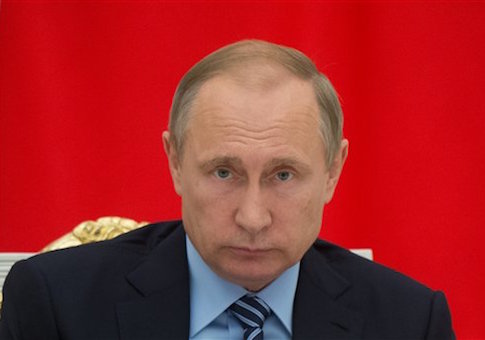Russia has aggressively expanded its Foreign Intelligence Service operation over the past decade, according to recent satellite imagery that provides evidence of Moscow’s efforts to wage clandestine operations across Europe and in the United States.
The satellite imagery, which was compiled in a recent report on Russia’s global intelligence operation, shows that Moscow added several new buildings and structures to its intelligence headquarters, known as SVR, from 2007 to 2016, a period that saw a dramatic rise in Russian espionage operations, experts said.
The images show the completed construction of at least three new buildings around the complex, as well as an expansion of parking areas, which appear to have quadrupled in capacity, according to an analysis of the images provided by the Federation of American Scientists.
Experts tracking Moscow’s efforts told the Washington Free Beacon that the images coincide with separate reports on the country’s growing intelligence infrastructure and provide evidence that Russia is focused on boosting clandestine operations across the globe.
"That the SVR's physical footprint in Russia is growing is of no surprise as countries across Europe and around the world have reported an increase in Russian foreign intelligence operations within their borders," said Boris Zilberman, who focuses on Russia at the Foundation for Defense of Democracy’s Center on Sanctions and Illicit Finance.
Zilberman noted that the SVR’s physical growth has coincided with a rise in Russian espionage activities in Europe and the United States, including a recent incident in which the U.S. Justice Department imprisoned a Russian banker for his work on behalf of the country’s intelligence community.
"There are the two recently expelled Russian diplomats, who one can safely assume also worked for Russian intelligence," Zilberman noted. "The story goes on—the UK, Scandinavian countries, Germany, Poland, etc., etc., have all reported an uptick in Russian operations."
Given this dramatic rise, "infrastructure for an increase in such operations have to be housed somewhere, so with these images we are seeing a manifestation of Russia's growing intelligence operations," he said.
Recent investigations into Moscow’s intelligence community also noted massive growth and a shift in focus to operations outside of the country’s borders.
"As well as espionage, Moscow’s ‘special services’ conduct active measures aimed at subverting and destabilizing European governments, operations in support of Russian economic interests, and attacks on political enemies," the European Council of Foreign Relations concluded in a recent report.
"Moscow has developed an array of overlapping and competitive security and spy services," according to the report. "The aim is to encourage risk-taking and multiple sources, but it also leads to turf wars and a tendency to play to Kremlin prejudices."
Private U.S. intelligence analysts also have tracked efforts by Russia to expand the reach of its intelligence service.
Anna Borshchevskaya, a longtime Russia analyst and current fellow at the Washington Institute for Near East Policy, told the Free Beacon that the intelligence expansion is part of a larger effort by Russia to expand its entire military.
"It’s not surprising that Russia would expand its intel services. It would be consistent with Russia’s overall military reform efforts since 2008—the largest build-up since the break-up of the Soviet Union," she explained. "Overall results of this build-up have been mixed, but Kremlin can certainly point to concrete achievements and it is in this context that Putin took an increasingly aggressive posture abroad over the years."
"Also, since Russia is weak relative to the West in conventional terms, it’s not surprising that Putin (himself a former KGB man) would focus more on things such as information warfare, to undermine Western institutions; it’s an effective tool of a weaker adversary," Borshchevskaya said. "And that would require expansion of intelligence services."
